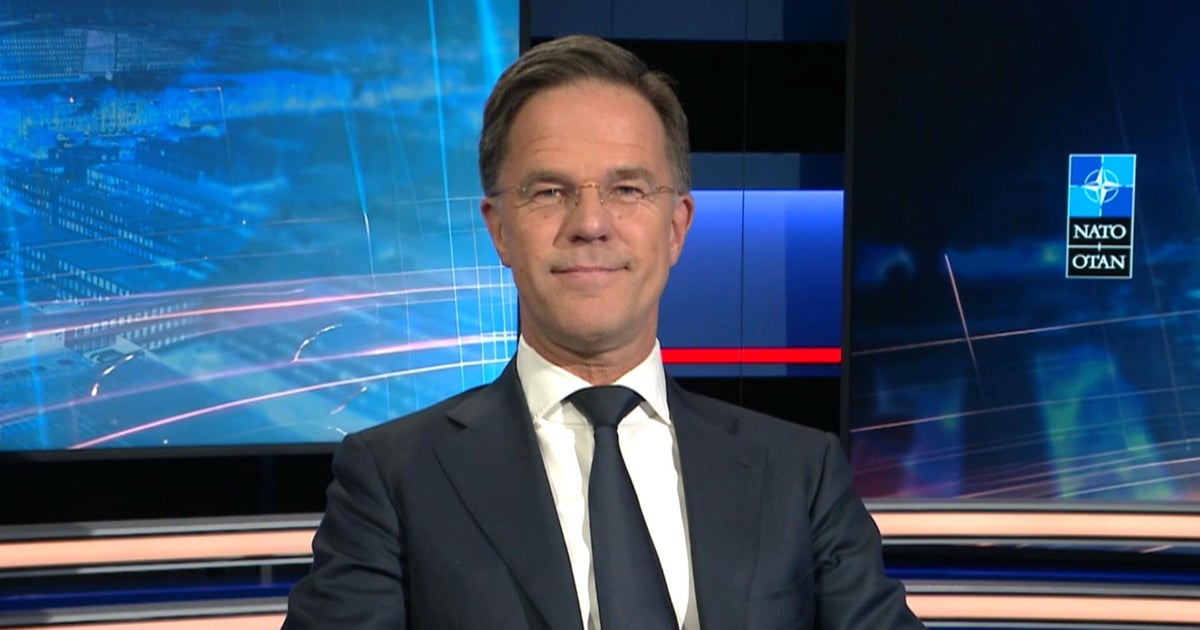Inside NATO: Mark Rutte’s Unfiltered Insights on Global Security
In a candid interview on CBS’s “Face the Nation,” NATO Secretary General Mark Rutte offered unfiltered perspectives on the alliance’s most pressing security challenges. Speaking from Brussels on Sunday, the former Dutch Prime Minister addressed evolving threats, transatlantic cooperation, and NATO’s role in maintaining global stability amid rising geopolitical tensions.
The Evolving Threat Landscape
Rutte emphasized that NATO faces a “multidimensional security crisis,” citing Russia’s ongoing war in Ukraine, China’s military expansion, and emerging cyber threats. According to NATO’s 2023 annual report, member states have recorded a 120% increase in cyberattacks targeting critical infrastructure since 2020.
“We’re no longer in an era where threats come from a single direction,” Rutte stated. “Hybrid warfare blurs the lines between conventional and unconventional attacks, requiring equally adaptive responses.” He pointed to recent incidents in the Baltics, where suspected Russian operatives have allegedly damaged undersea cables and GPS systems.
Transatlantic Cooperation at a Crossroads
The Secretary General acknowledged growing concerns about U.S. commitment to NATO, particularly with potential political changes looming in Washington. However, he expressed confidence in the alliance’s resilience: “NATO has survived 75 years because it adapts. The transatlantic bond isn’t about any single administration—it’s about shared democratic values.”
Key statistics underscore NATO’s current posture:
- 23 of 32 members now meet the 2% GDP defense spending target
- Alliance military expenditures reached $1.3 trillion in 2023
- Over 40,000 troops remain on high alert across Eastern Europe
Ukraine and the Future of Collective Defense
Rutte reaffirmed NATO’s “unwavering support” for Ukraine while carefully distinguishing between the alliance’s defensive mandate and Ukraine’s offensive operations. “Article 5 remains our bedrock principle,” he noted, “but we must also help partners defend themselves before threats reach NATO borders.”
Military analyst Dr. Elena Petrova offered a contrasting view: “NATO’s cautious approach risks creating security vacuums. If Ukraine falls, the alliance will face a resurgent Russia with 1,200 km of new NATO borders to defend.” Recent RAND Corporation simulations suggest Russian forces could regroup for another offensive within 18-24 months without sustained Ukrainian resistance.
The China Factor in NATO’s Strategic Calculus
For the first time, Rutte explicitly linked European and Asian security, stating that “Beijing’s actions in the South China Sea directly impact Atlantic security.” This reflects NATO’s growing focus on China, evidenced by:
- First-ever NATO-China military expenditure comparisons in 2023 summit documents
- Joint exercises with Pacific partners Japan and South Korea
- Intelligence-sharing agreements with Australia and New Zealand
However, some European members remain hesitant. “We can’t afford to open a second front when Russia remains an existential threat,” cautioned a senior diplomat from a Central European NATO state, speaking anonymously due to diplomatic protocols.
Technological Arms Race and Nuclear Deterrence
Rutte highlighted emerging technologies as both threat and opportunity: “AI-enabled systems are revolutionizing defense, but they’re also creating new vulnerabilities.” NATO recently established a $1 billion innovation fund targeting:
- Quantum computing applications
- Hypersonic missile defense
- Space-based early warning systems
On nuclear deterrence, Rutte struck a measured tone: “Our nuclear sharing arrangement remains the ultimate security guarantee, but we must continue arms control efforts.” This comes as Russia reportedly deploys tactical nuclear weapons to Belarus and China expands its arsenal by 400 warheads since 2020.
Preparing for NATO’s Next Decade
Looking ahead, Rutte outlined three priority areas for the alliance:
- Industrial mobilization: Accelerating defense production to replenish stocks depleted by Ukraine support
- Political cohesion: Maintaining unity amid differing threat perceptions across members
- Partnership expansion: Deepening ties with like-minded democracies in Asia and Africa
As NATO approaches its 75th anniversary summit in Washington this July, Rutte’s comments suggest a pivotal moment for the alliance. With global power dynamics shifting and conflict risks multiplying, the coming years may test NATO’s adaptability like never before.
For deeper analysis on NATO’s strategic challenges, subscribe to our defense policy newsletter or attend our upcoming webinar featuring former alliance commanders.
See more BBC Express News

